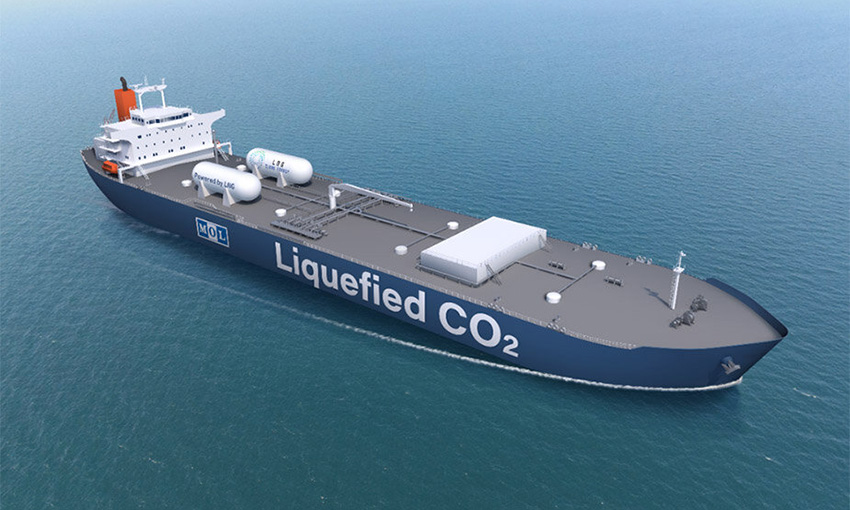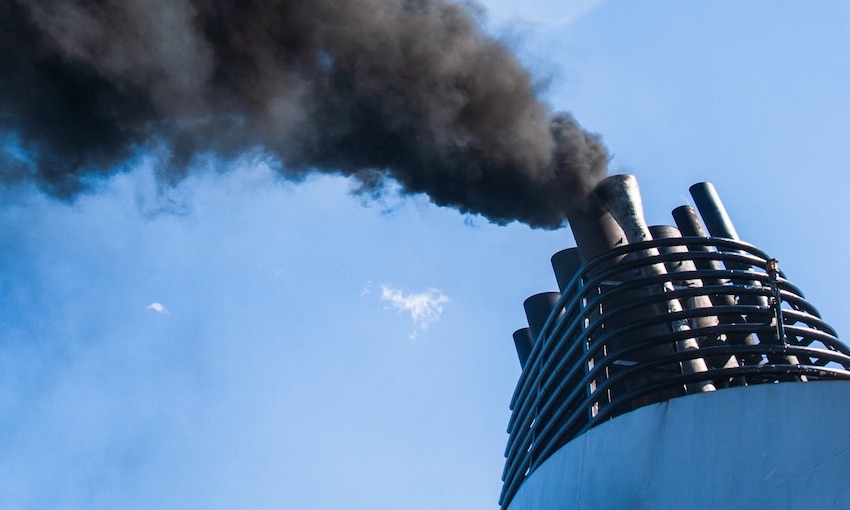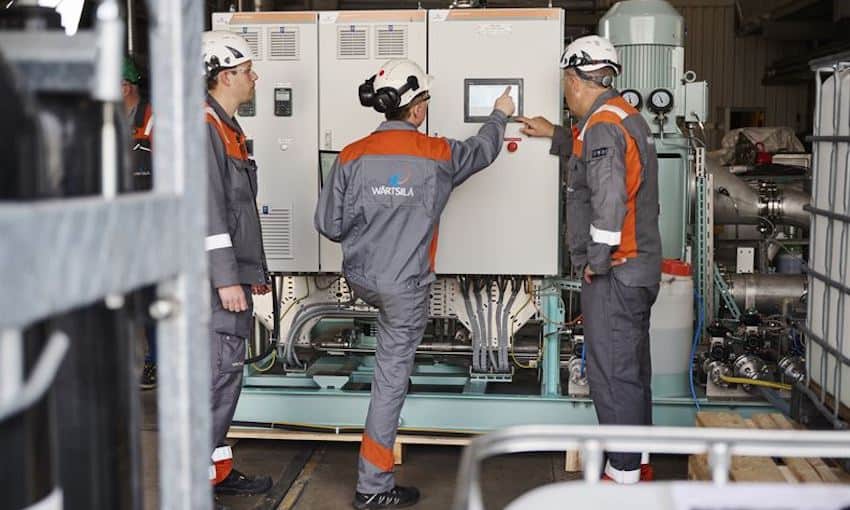MITSUI O.S.K. Lines is one of three Japanese companies to have partnered with Australian research institutes to study the bulk transport of carbon dioxide by ship.
MOL, Low Emission Technology Australia (LETA), Future Energy Exports (FEnEx CRC), JX Nippon Oil and Gas Exploration and Osaka Gas have announced an R&D partnership that aims to develop “solutions” for industrial-scale shipping of CO2.
FEnEx CRC is to execute the project alongside the University of Western Australia, Curtin University, Seoul National University and Carbon Capture and Storage (CCS) project developer deepC Store.
The study partners hope to demonstrate the technical feasibility and operability of low-pressure and low temperature bulk transportation of CO2.
MOL executive officer Yasuchika Noma said MOL was excited to collaborate with Australian research institutes and Japanese companies to advance technical and commercial maturation for shipping liquefied carbon dioxide.
“We believe the result of this project can be one step closer to the realisation of a lower carbon future,” he said.
FEnEx CEO and managing director Eric May said Australia has a unique opportunity to take a leadership role in developing industrial-scale carbon dioxide transport.
“Successful research in this area will help maximise economic opportunities for Australia as well as forge increased international collaboration and cooperation vital to progressing our decarbonisation goals,” Mr May said.
And LETA chief executive officer Mark McCallum said LETA has been investing in low emissions technologies for more than a decade to reduce emissions and support the transition to a low-emission global economy.
“LETA is proud to be investing in this project, which can assist in proving up technologies to enable transport of commercial quantities of CO2 from industrial facilities in Asia to storage locations in Australia and to build on the key trading and commercial relationship Australia’s export industries have spent generations building.”
LP Technology R&D Project will involve studying behaviour and boil-off characteristics of liquid CO2 under dynamic operating conditions.
A statement from participants said the current design of liquefied CO2 vessels has a limited storage volume due to their operating pressure and temperature.
They said low pressures and low temperatures are considered one of the best options to significantly reduce costs for CO2 vessel design, but there is no record of liquefied CO2 transportation by ship under low pressure and low temperatures conditions.
“Therefore, it is necessary to address operational risks and enhance the likelihood of technical feasibility,” they said.
“Through this LP Technology R&D Project, we aim to mature the technologies needed to safely and efficiently ship large quantities of CO2.
“Through future demonstration of this LP Technology, we aspire to assist Australia and the broader Asia Pacific region reach Net Zero by linking key emission sources to long-term utilisation and storage solutions.”





